Table of Contents
Who is Jon Kabat-Zinn?

Well, the first question after clicking on the article will definitively be who is Jon Kabat-Zinn? Don’t worry I am here to answer all your questions and guide you through the 9 attitudes one must portray to lead a mindful life. Jon Kabat Zinn’s 9 attitudes will help you help deepen your mindfulness.
Let’s come back to the question who is Jon Kabat-Zinn? Well, Jon Kabat-Zinn is an author, mindfulness instructor, and the originator of Mindfulness-Based Stress Reduction (MBSR). Kabat-Zinn, a molecular biologist by training, was exposed to meditation through Zen Buddhism but extended the concept of concentrated attention to a secular worldview. MBSR seeks to employ mindfulness as a regular practice to aid in stress reduction, awareness, and focus. Jon Kabat Zinn 9 attitudes mindfulness are a set of interrelated attitudes that Kabat-Zinn advocates for as a means to support awareness without forcing a particular sensation or mode of activity.
Jon Kabat-Zinn created an eight-week programme in 1979 to help terminally sick individuals lessen their stress and anxiety. This programme is now often referred to as MBSR (Mindfulness-Based Stress Reduction).
As the name says, mindfulness is at the heart of his approach.
What are Jon Kabat Zinn’s 9 attitudes?
The nine attitudes are traits that may be developed both in daily life and via formal mindfulness practice. The initial edition of Full Catastrophe Living included seven attitudes, but thankfulness and generosity have subsequently been added.
According to Jon, this seemingly simple direction stated in the definition is incredibly difficult for humans to follow, and hence these 9 attitudes that accompany mindfulness training are a crucial approach to expand your knowledge and experience of mindfulness training. These nine concepts are all inextricably linked and intertwined. You can master all of them by mastering just one of them, so you may opt to focus on a few rather than all of them.
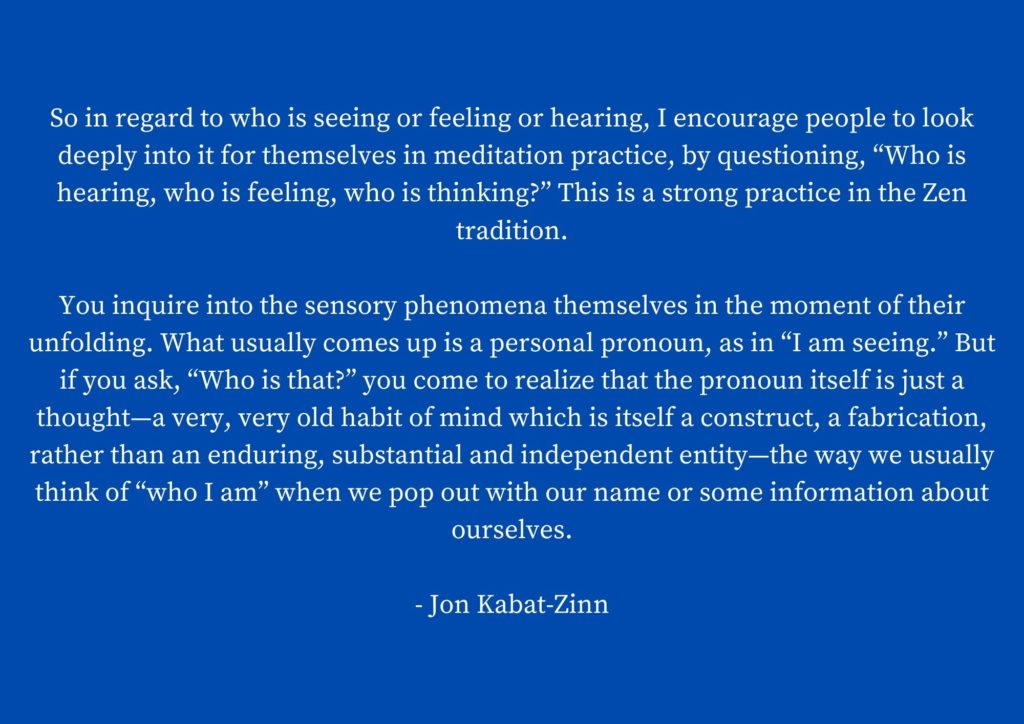
Jon informs us in the opening that being aware is one of the most difficult things we as humans can accomplish. And everyone who has tried it can attest to this.
Jon goes on to argue that we must contribute specific attributes to our endeavour. The problem is that we begin to imagine that we are already enlightened creatures. Because we all have a distorted view of who we are. We are significantly greater than the little ego we believe we are.
Let’s take a look at the Jon Kabat Zinn 9 Attitudes:
- Non Judging
- Beginners Mind
- Trust
- Acceptance
- Non-striving
- Patience
- Letting Go
- Gratitude
- Generosity
Non Judging
This is mentioned in the definition of mindfulness and is the basic concept that leads to a clear seeing awareness. Judging becomes a veil or filter to the current moment, coloring what we encounter and imprisoning us in our own limited reality tunnel. We may enlist a form of consciousness that clearly discerns the circumstance outside of our own conditioning by without judging. This is an enlightened sort of consciousness that is not limited by our own experiences, but rather embraces all views, holds all opinions lightly, and allows for the broadest and wisest scope possible in any given scenario.
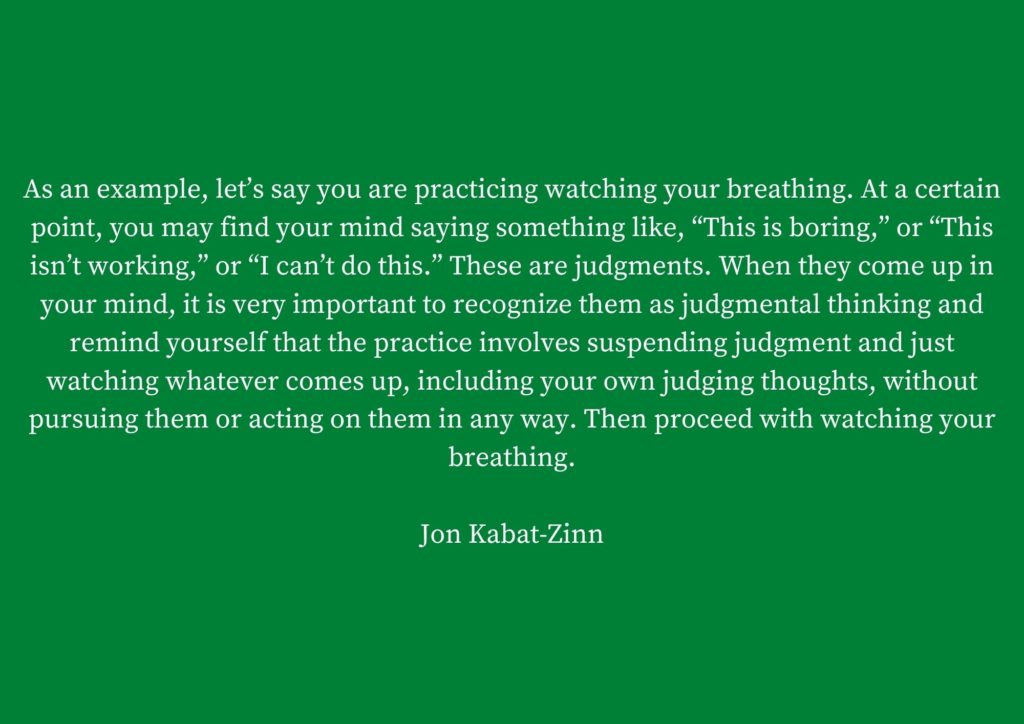
Most of the time, we judge by imprinting like or dislike, love or hatred, on whatever we come across. This continual subtle and sometimes not-so-subtle judgement stems from the mind’s desire for satisfaction in the world’s items. As a result, developing our confidence that real and permanent happiness stems from our own clear consciousness and warm heart undermines the mind’s inclination to continually judge and strive to gravitate toward things considered as pleasant and away from those perceived as unpleasant. As a result, we are not as fascinated and hooked to the pleasure or as terrified by the terrible.
Beginners Mind
This is a concept coined by Zen Master Shunryu Suzuki, and it is an important component of mindfulness. It refers to viewing the present time with fresh eyes and an open mind. “In the beginner’s mind, there are many options; in the expert’s mind, there are few,” Suzuki remarked. Having an innocent and open mindset, ironically, aids in the development of creativity and intellect. Without labels or preconceived notions about the circumstance, your entire self is free to engage with it and enhance your capacity to ‘think beyond the box.’
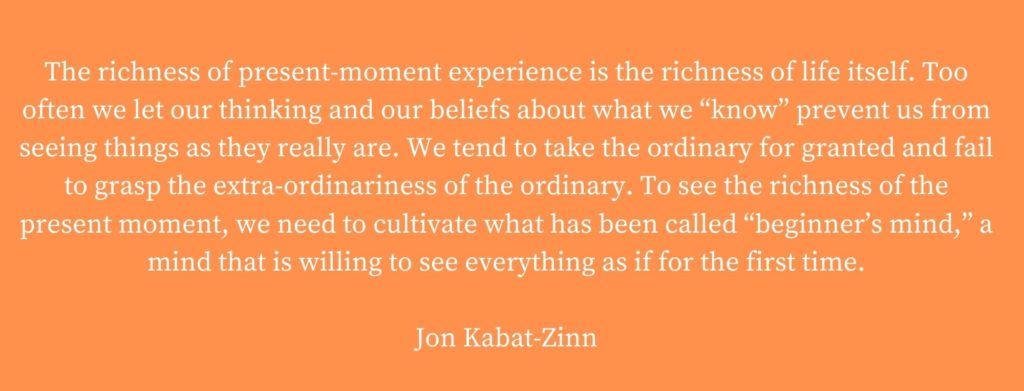
Trust
Being trustworthy and trusting are two sides of the same coin. Trust is the understanding that we do not have complete control over everything in our lives, and that many things critical to our survival are happening all the time, and we trust that. We may trust ourselves by paying attention to the tiny cues our bodies and intuition provide us at all times. And we can trust others if we don’t assume the worst about individuals and don’t make snap judgments about them based on their appearance, age, gender, or ethnicity.
Trust is a form of confidence in oneself and one’s surroundings. Trust is not gullible, and kindness is not a weakness. Believe in your ability to tell the difference between a friend and an adversary. You may believe that the process of continual nonjudgmental awareness is healthy and therapeutic and that you can manage tough situations with grace and dignity.
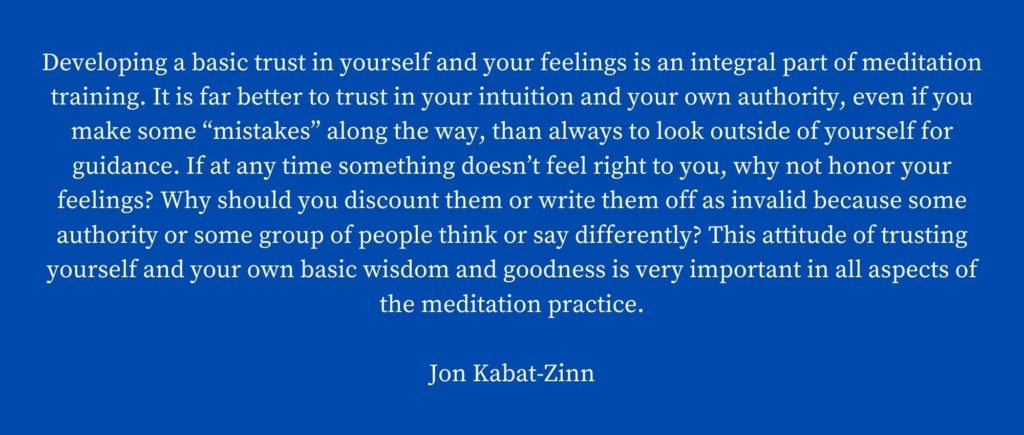
Acceptance
Acceptance is not a passive state; rather, it is an active acknowledgement that things are as they are. How could they be any other way? Resistance to the way things are is a primary source of mental and emotional distress, and it is a battle against reality itself. It is also one of the most misunderstood spiritual and mental health ideas. It does not imply that you should not strive to alter anything; this is a misunderstanding of acceptance. “You’re excellent the way you are, and you might use some work,” Zen master Suzuki stated. I believe that the ideal place for transformation to begin is with a clear understanding of the circumstance, which must involve a level of acceptance.
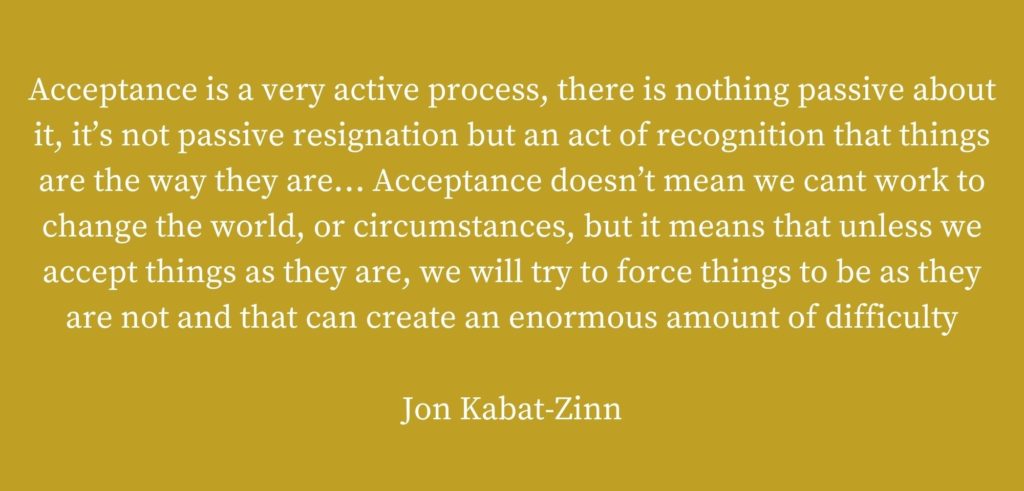
Non-striving
Without controlling, adjusting, or forcing anything, you are immediately immersed in the flow of now. To just be in the moment with no agenda. Non-striving does not imply a lack of aims or being aimless; rather, it refers to the capacity to go with the flow. “I do nothing and everything gets done,” says Lao Tzu. It’s a technique of acting without actually acting. The action occurs spontaneously, rather than being planned; it is more direct and natural, and hence more effective and suitable.
Non-striving recognizes that enjoyment is found in the calm of consciousness in every moment, rather than in obtaining or amassing things. Non-striving is linked with calm, freedom, and deep satisfaction with the way things are.
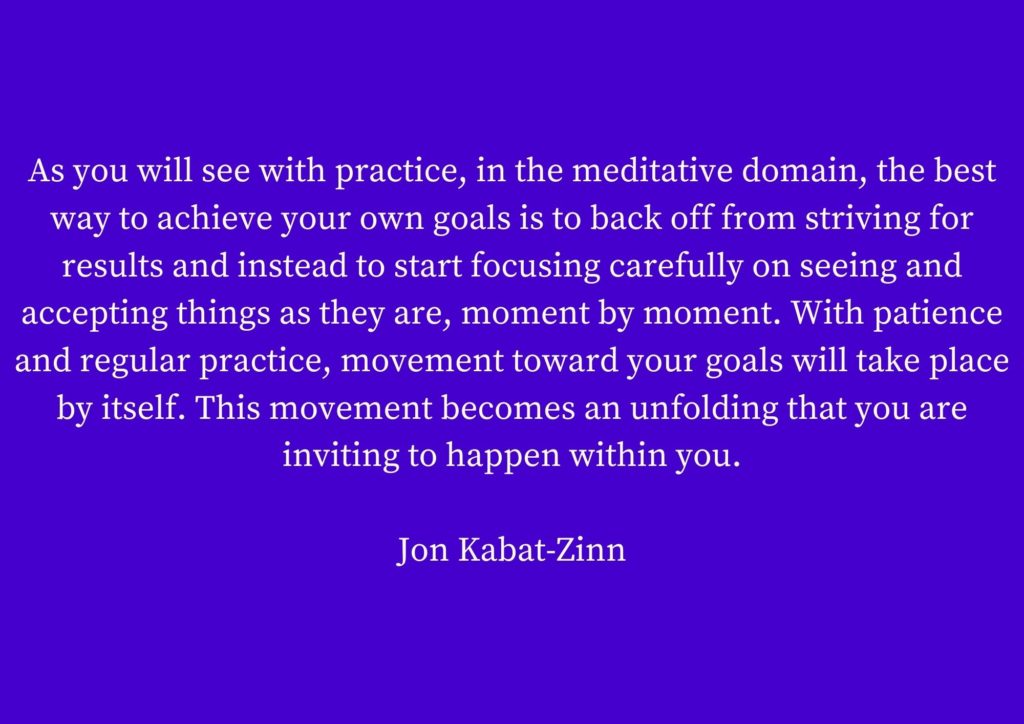
Patience
People are frequently in such a hurry to get to the next thing that they forget to savour and be present in the moment. According to Zen Master Thich Nhat Hanh, “if you can’t appreciate cleaning the dishes, you won’t enjoy what you’re looking forward to doing later.” Looking ahead becomes a habit in people’s life, impairing their capacity to enjoy the present moment.
Patience also entails remaining cool when things do not go your way or move at a pace that is far too sluggish for you. Patience is an important attitude that shields the mind from anger and is strongly encouraged by Buddhists. It allows us to remain cool under pressure and teaches us to appreciate the minor moments in life, because life is made up of small moments.
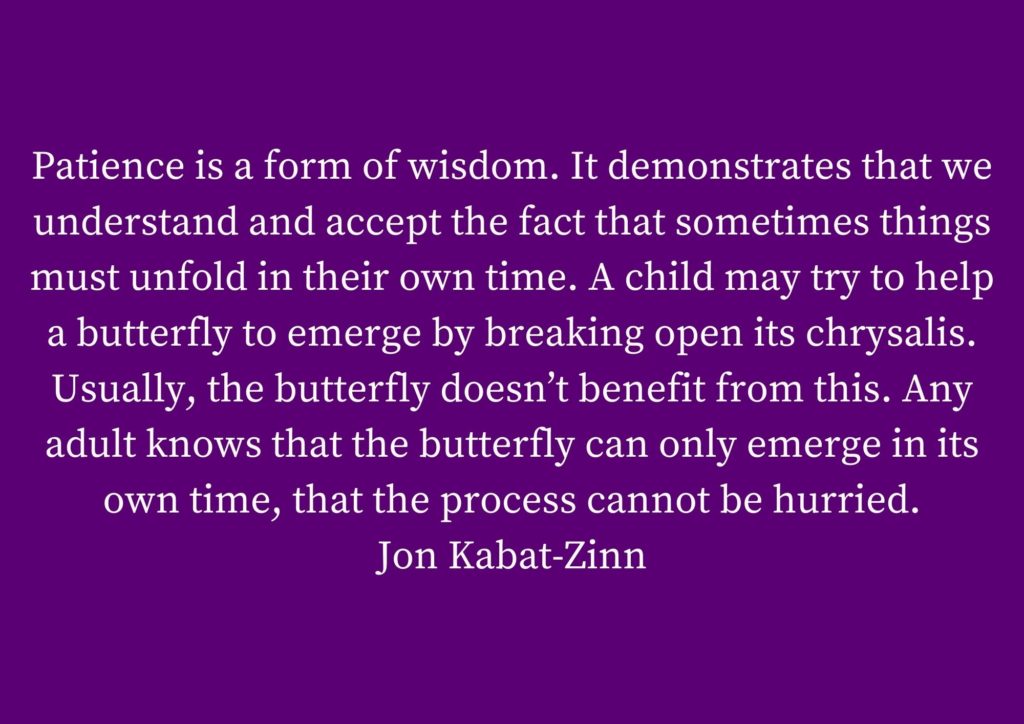
Letting Go
Letting go tells us that we have the ability to let things go. Also letting go of the desire for things to be different. Clinging to things is a self-imposed prison, thus letting go is the route to liberation. According to Alan Watts, we let go with every out-breath, and clinging to life is as stupid as clinging to the in-breath. We enable things to flow into our life by letting go. By letting go, we avoid fighting and resisting change. We trust the process when we let go.
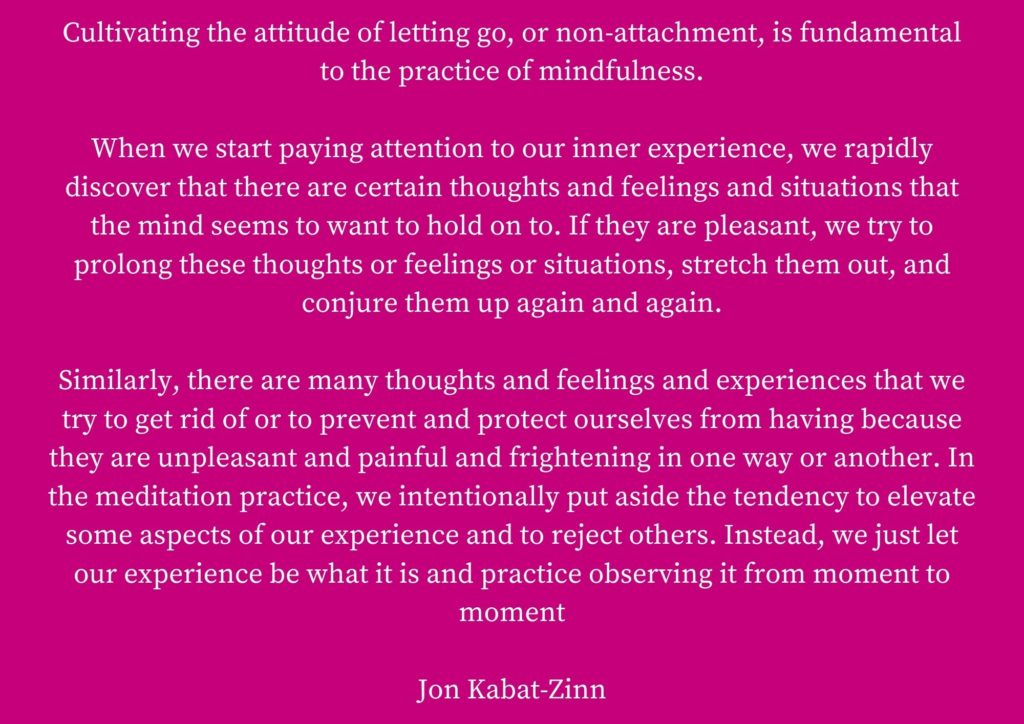
Gratitude
Initially, Jon Kabit Zinn just wrote 7 attitudes of mindfulness but extended it to include the important aspects of gratitude and generosity. Gratitude is a way to protect your mind from constantly complaining and finding the negative in things. Psychologists call it having a negative bias and it’s damaging to our mental health. To enjoy the present moment with a sense of reverence and humility. By slowing down and bringing gratitude into our present moment we bring a sense of delight and focus on the positive in life. Even when things are bad we be grateful for surviving them and learning from those events. Gratitude is always an option and a very healthy option indeed.
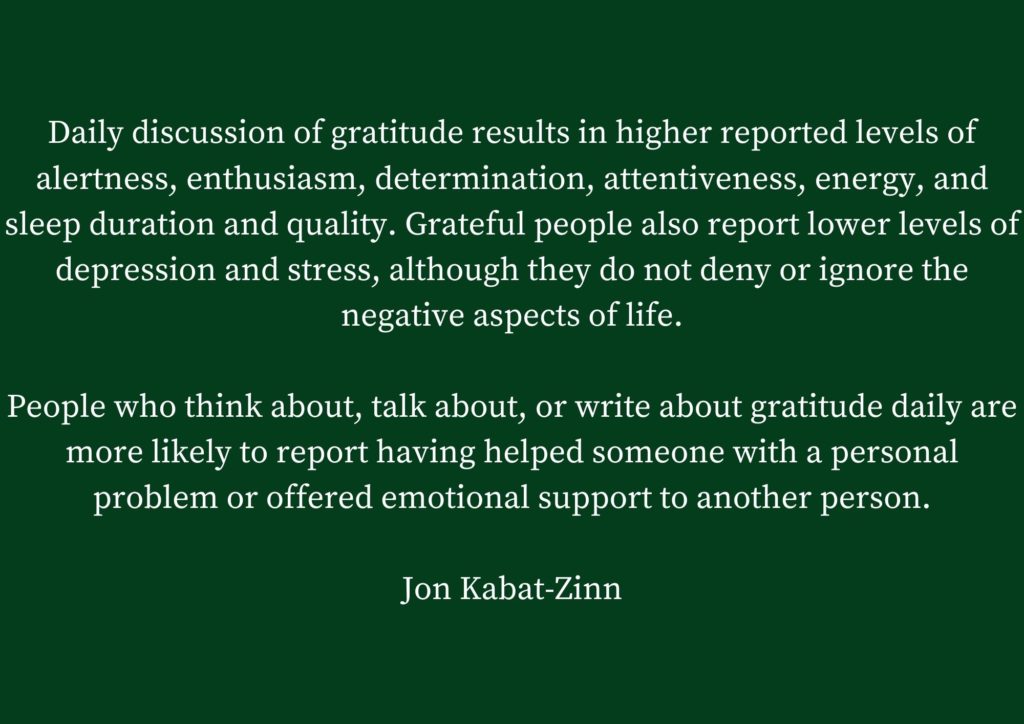
Generosity
Giving someone your presence is the most precious gift of all. In truth, our children frequently desire nothing more than our undivided attention. Being generous recognizes that sharing brings more enjoyment than clinging to stuff. Generosity is characterized by a warm heart and a compassionate demeanor. Mindfulness, according to Jon Kabat Zinn, also means “heart fullness.” Being present in an open and generous manner. Being nonjudgmental is also a wonderful gift to others and the basis of a strong relationship.
To give you a jump-start, download EvolveApp. It has guided audio on mindfulness. The App is now live globally on Android & Apple.
To read more articles click on the following links
Meditation For Awareness Simplified-all you Beginners need to know
How To Detect Signs Of Low Self- Esteem In A Man
Co-founder and brains at LeapX by C32 Media Labs
Mail at sarah@c32.media to connect with her.